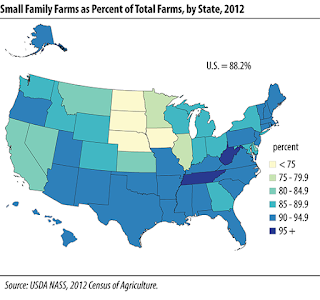A recent FSA rule caught my eye. There are eleven different sections citing requirements (EO 13771 is the Trump one.)
Executive Orders 12866, 13563, and 13771
Executive Order 12866, “Regulatory Planning and Review,” and Executive Order 13563, “Improving Regulation and Regulatory Review,” direct agencies to assess all costs and benefits of available regulatory alternatives and, if regulation is necessary, to select regulatory approaches that maximize net benefits (including potential economic, environmental, public health and safety effects, distributive impacts, and equity). Executive Order 13563 emphasized the importance of quantifying both costs and benefits, of reducing costs, of harmonizing rules, and of promoting flexibility. The Office of Management and Budget (OMB) designated this rule as not significant under Executive Order 12866, “Regulatory Planning and Review,” and therefore, OMB has not reviewed this rule. The rule is not subject to Executive Order 13771, “Reducing Regulation and Controlling Regulatory Costs.”Paperwork Reduction Act of 1995
Pursuant to the provisions of the Paperwork Reduction Act of 1995 (44 U.S.C. chapter 35, subchapter I), the collections of information in this rule have been approved by OMB under control number 0563-0053.E-Government Act Compliance
USDA is committed to complying with the E-Government Act of 2002, to promote the use of the internet and other information technologies to provide increased opportunities for citizen access to Government information and services, and for other purposes.Unfunded Mandates Reform Act of 1995
Title II of the Unfunded Mandates Reform Act of 1995 (UMRA) establishes requirements for Federal agencies to assess the effects of their regulatory actions on State, local, and tribal governments and the private sector. This rule contains no Federal mandates (under the regulatory provisions of title II of the UMRA) for State, local, and tribal governments or the private sector. Therefore, this rule is not subject to the requirements of sections 202 and 205 of UMRA.Executive Order 13132
It has been determined under section 1(a) of Executive Order 13132, Federalism, that this rule does not have sufficient implications to warrant consultation with the States. The provisions contained in this rule will not have a substantial direct effect on States, or on the relationship between the national government and the States, or on the distribution of power and responsibilities among the various levels of government.Executive Order 13175
This rule has been reviewed in accordance with the requirements of Executive Order 13175, “Consultation and Coordination with Indian Tribal Governments.” Executive Order 13175 requires Federal agencies to consult and coordinate with tribes on a government-to-government basis on policies that have tribal implications, including regulations, legislative comments or proposed legislation, and other policy statements or actions that have substantial direct effects on one or more Indian tribes, on the relationship between the Federal Government and Indian tribes or on the distribution of power and responsibilities between the Federal Government and Indian tribes.USDA has assessed the impact of this rule on Indian tribes and determined that this rule does not, to our knowledge, have tribal implications that require tribal consultation under E.O. 13175. If a Tribe requests consultation, USDA will work with the Office of Tribal Relations to ensure meaningful consultation is provided where changes, additions and modifications identified herein are not expressly mandated by Congress.
